An Interview With Wild Bill Hickok
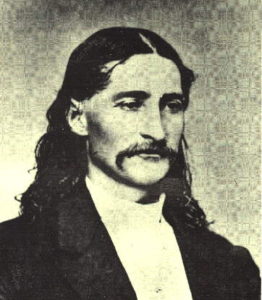 This is an interview by Henry M. Stanley, African explorer who uttered the famous line “Dr. Livingston, I presume?” He met James Hickok while working for the Weekly Missouri Democrat. At the time of his interview with Wild Bill Hickok he was a scout for the Seventh Calvary.
This is an interview by Henry M. Stanley, African explorer who uttered the famous line “Dr. Livingston, I presume?” He met James Hickok while working for the Weekly Missouri Democrat. At the time of his interview with Wild Bill Hickok he was a scout for the Seventh Calvary.
April 4, 1867, Weekly Missouri Democrat – James Butler Hickok, commonly called “Wild Bill” is one of the finest examples of that peculiar class now extant, known as Frontiersman, ranger, hunter and Indian scout. He is now thirty-eight years old and since he was thirteen the prairie has been his home. He stands six feet one inch in his moccasins and is as handsome a specimen of a man as could be found. Harper’s correspondent recently gave a sketch of the career of this remarkable man which excepting a slight exaggeration, was correct.
We were prepared, on hearing of “Wild Bill’s” presence in camp, to see a person who would prove to be a coarse, illiterate, quarrelsome, obtrusive, obstinate bully; in fact one of those ruffians to be found South and West, who delights in shedding blood. We confess to being greatly disappointed when, on being introduced to him, we looked on a person who was the very reverse of all that we had imagined. He was dressed in a black sacque coat, brown pants, fancy shirt, leather leggings and had on his head a beaver cap. Tall, straight, broad compact shoulders, Herculean chest, narrow waist, and well formed muscular limbs. A fine handsome face, free from any blemish, a light moustache, a thin pointed nose, bluish-gray eyes, with a calm, quiet almost benignant look, yet seemingly possessing some mysterious latent power, a magnificent forehead, hair parted from the center of his forehead and hanging down behind the ears in long silky curls. He is brave, there can be no doubt; that fact is impressed on you at once before he utters a single syllable. He is neither as coarse nor as illiterate as Harper’s Monthly portrays him.
The following verbatim dialogue took place between us: “I say Bill, or Mr. Hickok, how many white men have you killed to your certain knowledge?”
After a little deliberation, he replied, “I would be willing to take my oath on the Bible tomorrow that I have killed over a hundred a long ways off.”
“What made you kill all those men; did you kill them without cause or provocation?”
“No, by Heaven! I never killed one man without a good cause.”
“How old were you when you killed your first man, and for what cause?”
“I was twenty-eight years old when I killed the first white man, and if ever a man deserved killing he did. He was a gambler and counterfeiter, and I was in a hotel in Leavenworth City then, as seeing some loose characters around, I ordered a room, and as I had some money about me, I thought I would go to it. I had lain some thirty minutes on the bed when I heard some men at the door. I pulled out my revolver and Bowie knife and held them ready, but half concealed, pretending to be asleep. The door was opened and five men entered the room. They whispered together, ‘Let us kill the son of a b—h; I bet he has got money.’
“Gentlemen,” he said further, “that was a time, an awful time. I kept perfectly still until just as the knife touched my breast; I sprang aside and buried mine in his heart and then used my revolvers on the others, right and left. Only one was wounded besides the one killed; and then, gentlemen, I dashed through the room and rushed to the fort, procured a lot of soldiers, came to the hotel and captured the whole gang of them, fifteen in all. We searched the cellar and found eleven bodies buried there-men who had been murdered by those villains.”
Turning to us he asked, “Would you have not done the same? That was the first man I killed and I was never sorry for that yet.”


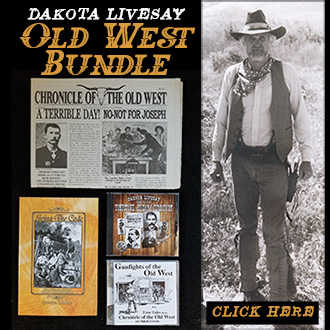
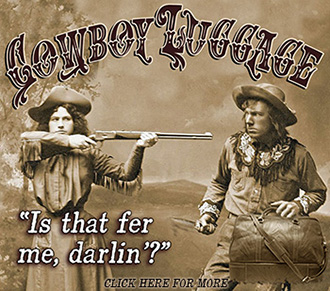
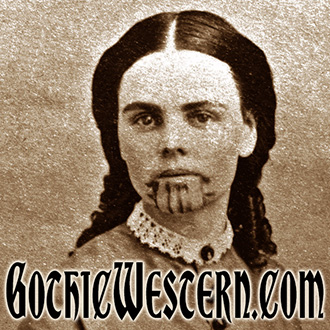
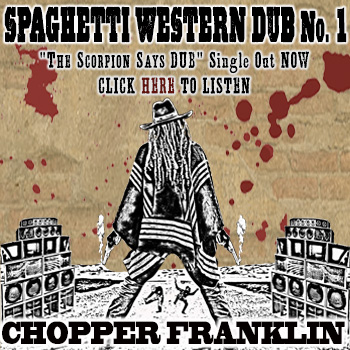
Leave a Reply